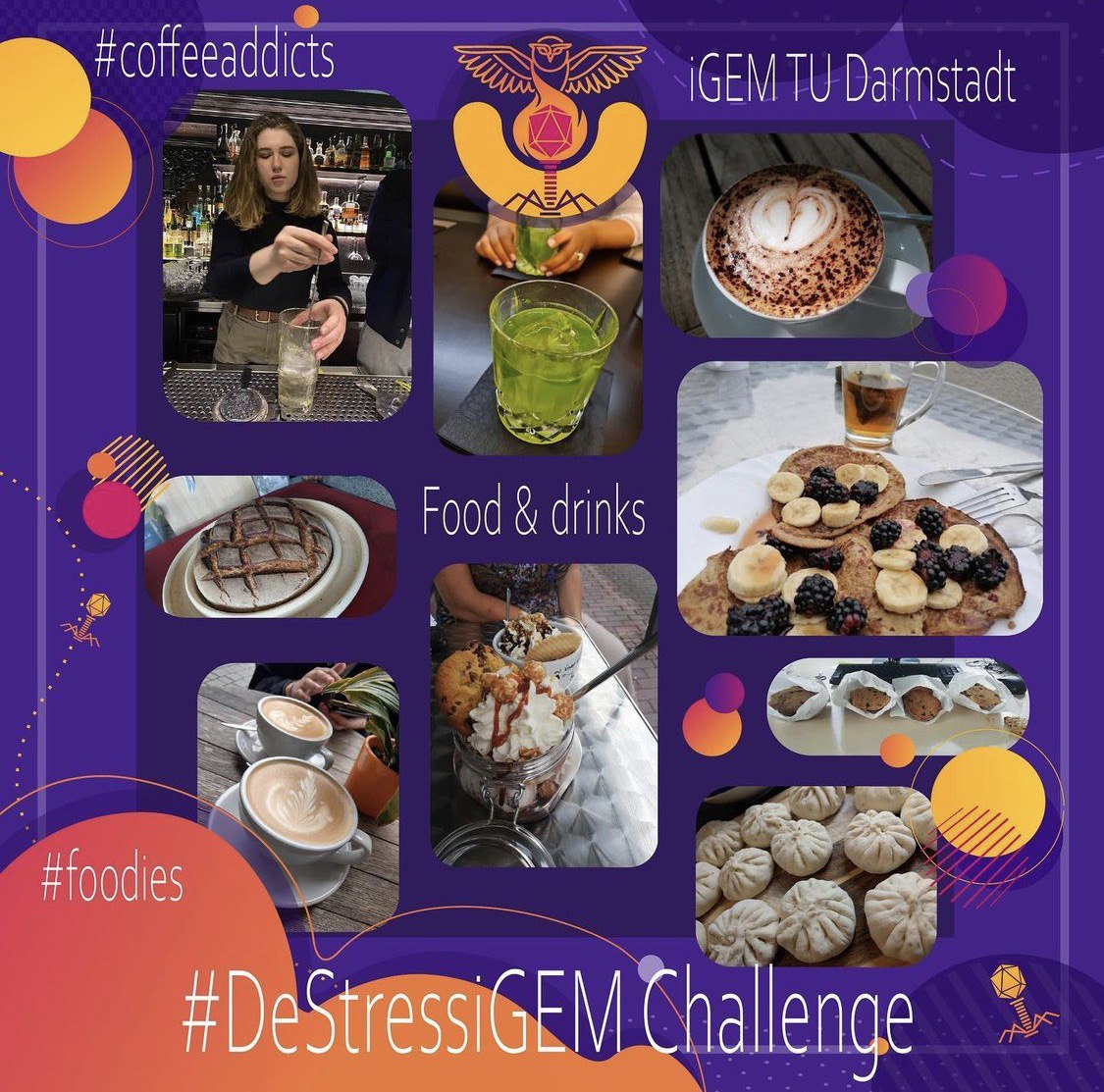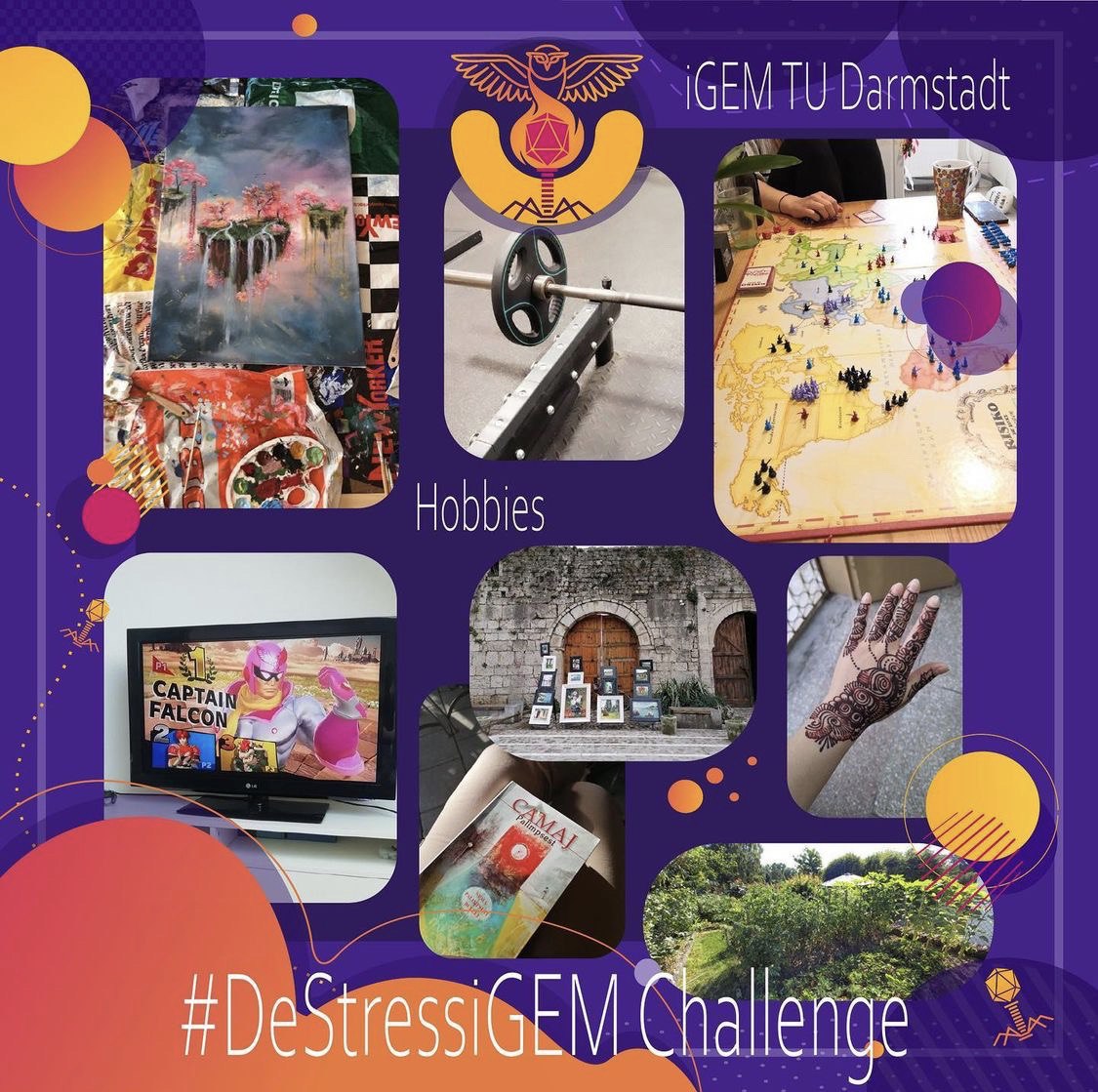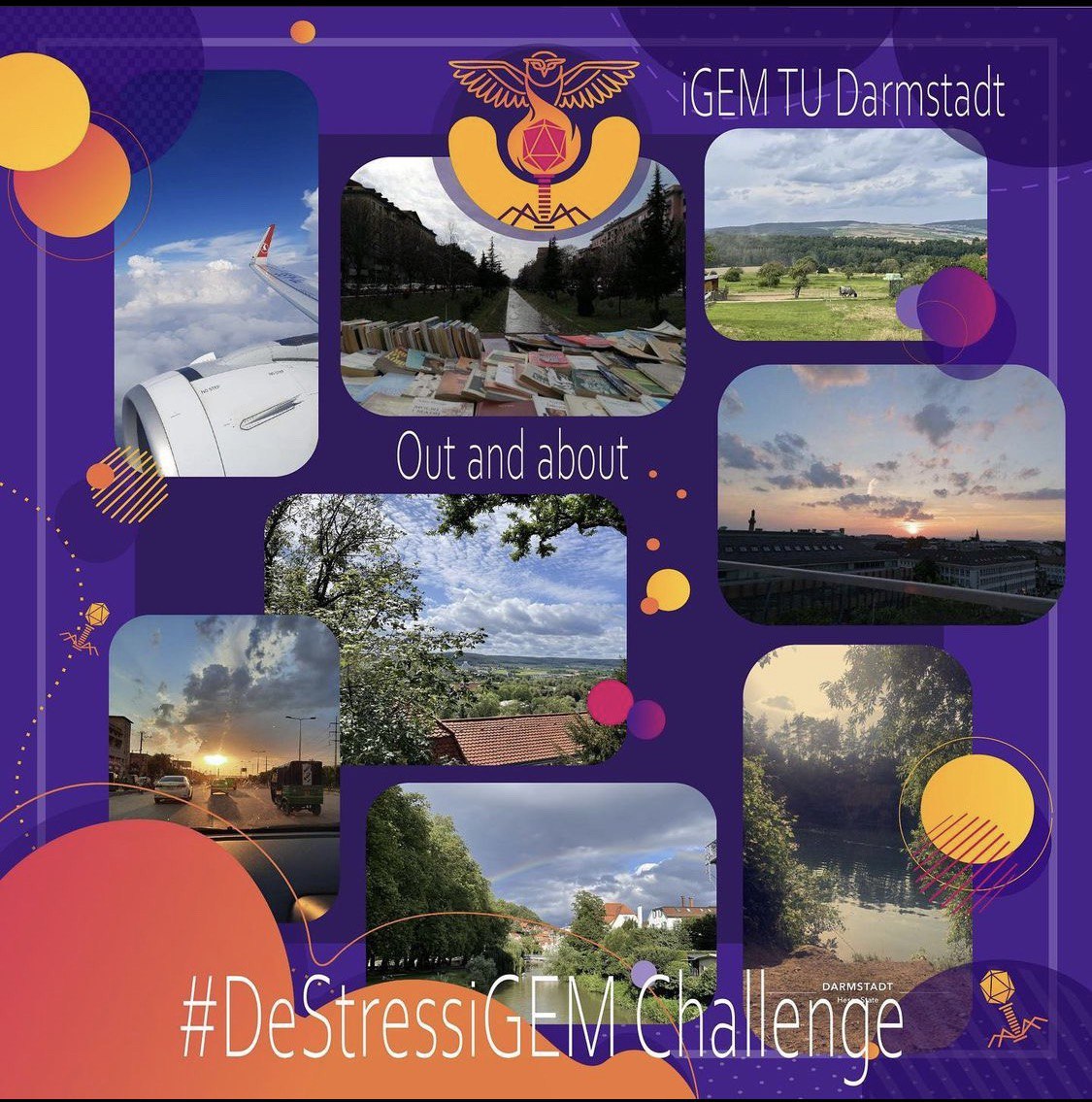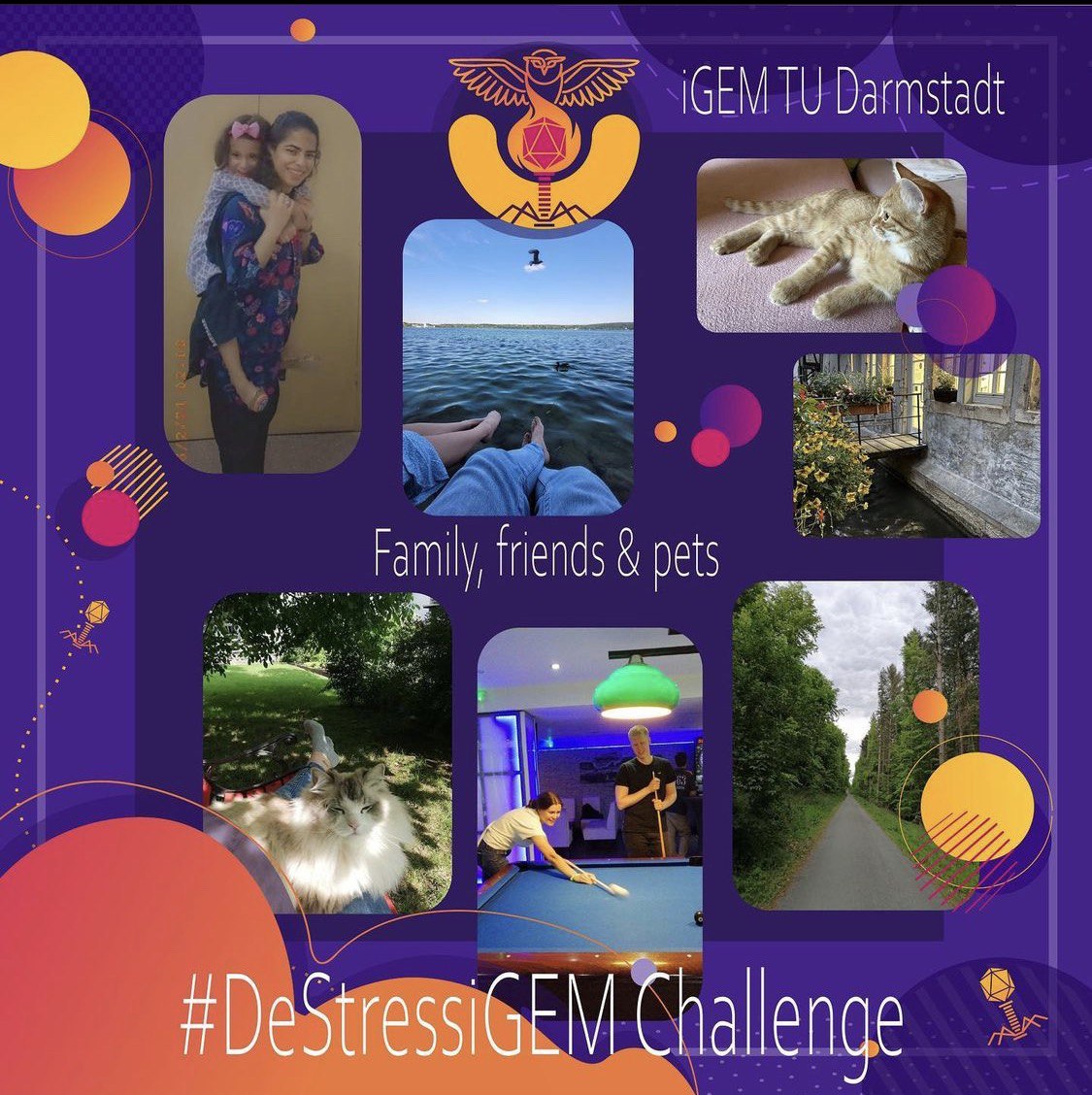Social Media
iJet
In 2020 the iGEM Teams Aachen and Darmstadt created iJET – a video collaboration of iGEM Teams around the world. They wanted to connect with other teams despite the isolation of the pandemic. This year, we are still affected by the consequences of COVID-19 and a subsequent lack of meet-ups. We also sought connection with our fellow iGEM Teams and have thus decided to create iJET 2021: a little paper plane’s journey around the world!
32 iGEM Teams from many different countries such as Bolivia, Sweden and Taiwan, have participated in our collaboration. It was a very moving experience to see everyone coming together and creating this wonderful video in the true spirit of iGEM.
iGEMxSDG Impact Challenge
This year, the TAS_Taipei iGEM Team of Taipei American School initiated a challenge called “iGEMxSDG IMPACT CHALLENGE”.
SDG stands for sustainable development goals. These 17 interlinked global goals were set by the United Nations General Assembly in 2015 and are supposed to be achieved by 2030. 1
Within this challenge, iGEM Teams need to think about how their project tackles one or more of these goals in order to create a specific task, or even multiple tasks, for other teams to complete that will help their own team to achieve the project’s SDGs. These tasks should target a specific subgoal of an SDG. The subgoal we wanted to target was regarding quality education and the task we created was to share our survey with other teams. Other teams also had tasks where they asked to get in contact with certain groups of people or specialists for certain topics. To keep it fair, you had to complete as many tasks as you specified, and each team could decide for themselves which tasks they wanted to carry out. At the end of the challenge, when we had all completed our tasks, all the teams met on Zoom in a big conference. There we had the opportunity to talk to other teams from all over the world, listen to their projects this year, and learn how they approached the SDGs, what tasks they completed, and what their experience was like during the challenge.
This collaboration is a great way of using the iGEM community to show that when we all work together and help each other out, we can accomplish so much more than we can on our own.
We initially participated because we think the concept behind the challenge is great and since we also have SDGs we want to tackle. Since our task was to send our survey on genetically modified organisms to other teams we were able to collect more data from people outside of our circle, giving us a broader spectrum of opinions about the topic. Because we took on the task of in return, we were also able to help them with promoting their survey.
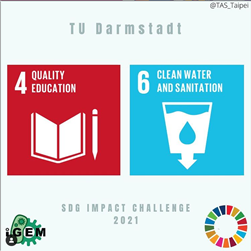
Figure 1. Screenshot of our Instagram post for the iGEMxSDG IMPACT CHALLENGE 2021 were we showed which SDGs we wanted to tackle this year and also nominated more teams to get more people to participate. The challenge was initiated by the TAS_Taipei iGEM Team.
Destress Challenge
Our team has been working on the project for almost a year, and a lot of good and bad things have happened during this time. Of course, in science almost nothing can work out in one take. So we tried in every way possible to maintain a positive team spirit. Besides the communication within our team, we also wanted to have fun with iGEMers from all over the world.
One of the integral parts of our social media account was participating in challenges, like the “DeStressiGEM Challenge”. The challenge was started by teams from Costa Rica, Vienna and Taiwan. Each of the team members showed how they spend their free time and what they do to relax. As expected, each of us coped with the stress that occurred during the work on the project in our own way. The most commonly ways that turned out to be our favorites were hobbies, food and traveling.
Sadly, this challenge was not very popular among the other teams, but it helped us to understand that taking a short break is beneficial for a successful development of the project.
Postcard Collaboration iGEM Düsseldorf
Since 2016 the iGEM Team Düsseldorf kindly organized the amazing Post Card Collaboration to bring the iGEM community closer together. We as the iGEM Team of the TU Darmstadt are proud to have been a part of this collaboration since the beginning. It is a beautiful way to see what interesting and creative ideas teams form all over the world are working on this year. Trying to bring the scientific community further along and laying the foundation to tackle severe real-life problems.
We want to thank iGEM Düsseldorf for once again taking the time to collect and distribute postcards from each participating team. Thank you for the planning and executing of this beautiful project and for sending us lots and lots of gorgeous postcards! We are already thrilled for the next year to come!
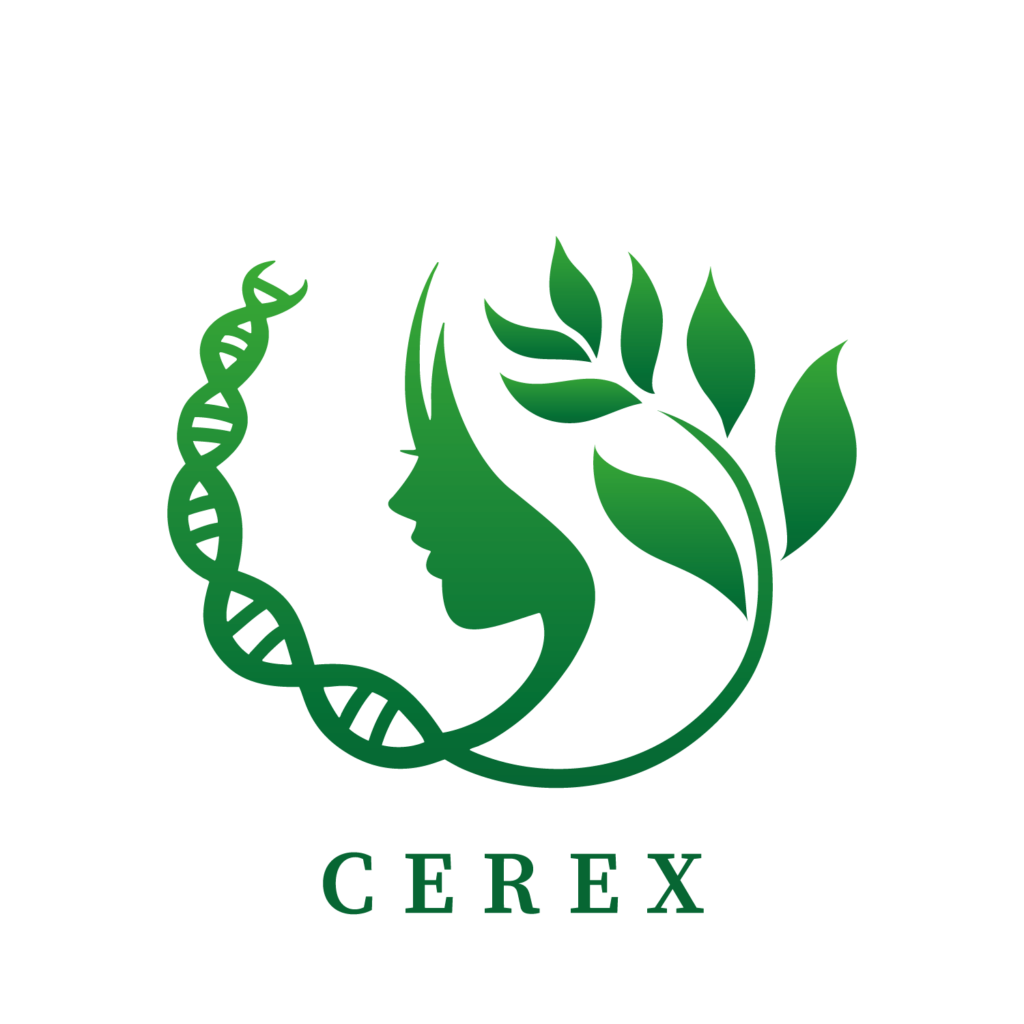
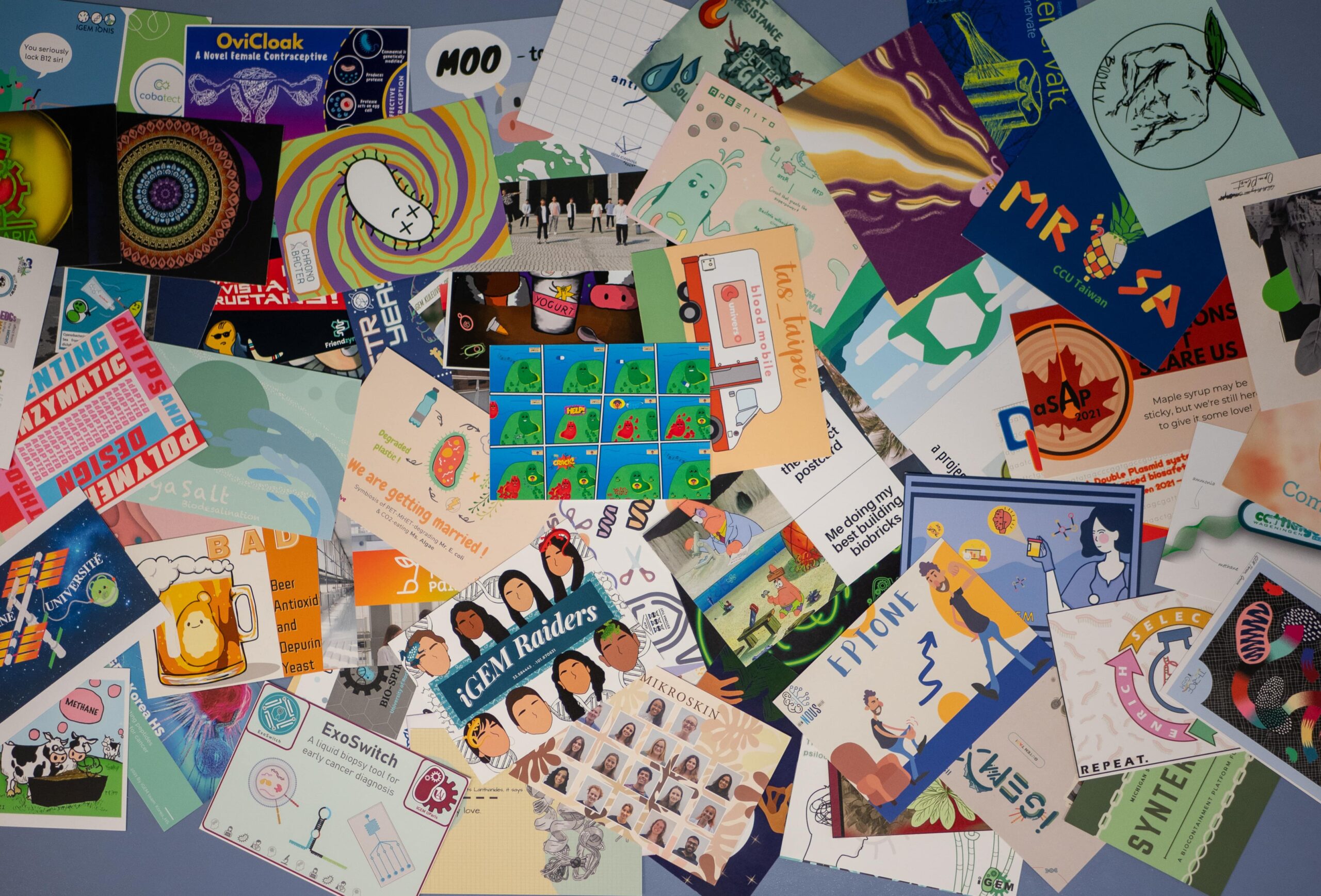
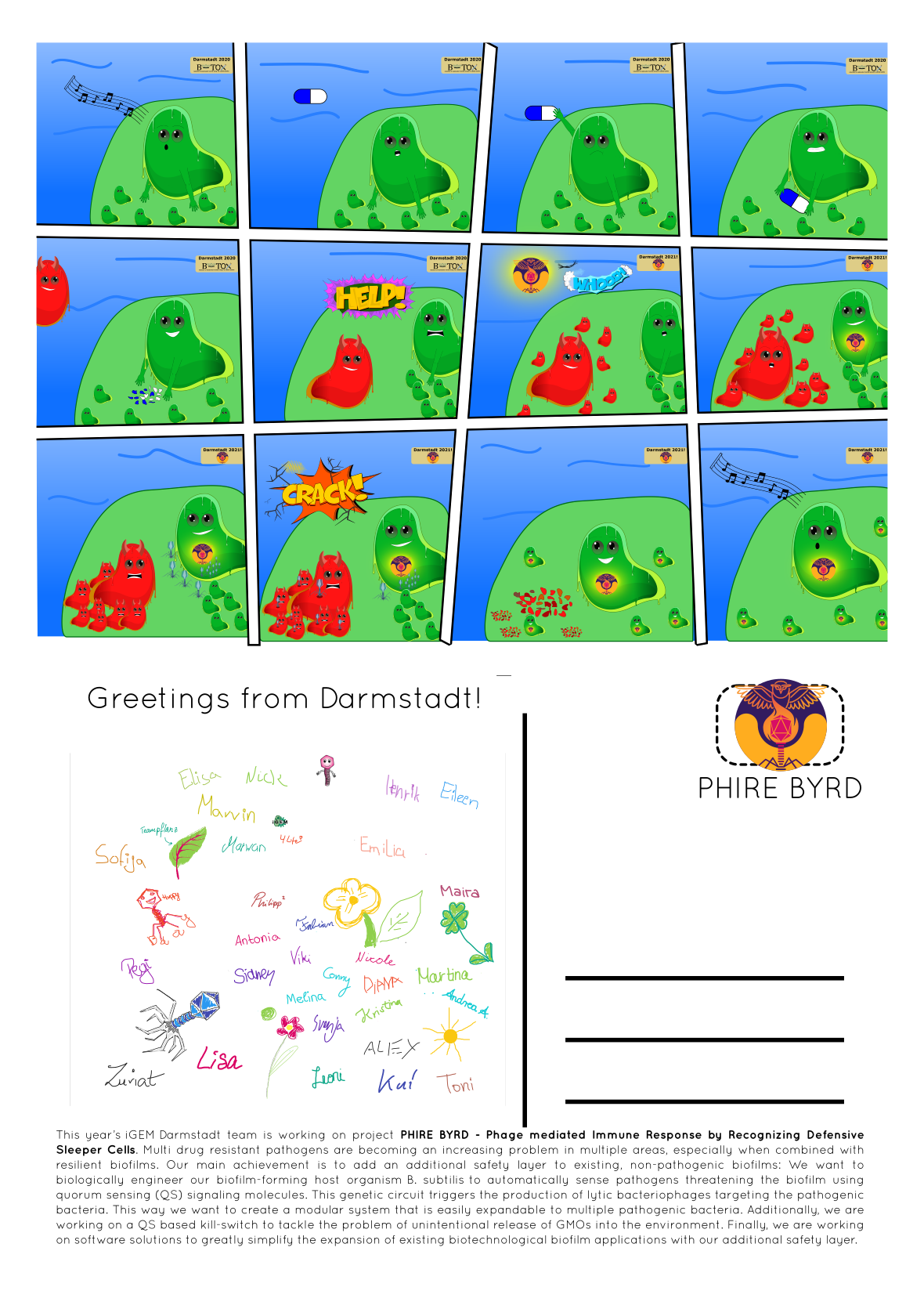
Team Korea HS
We met Team Korea_HS in the midths of both of our project. After getting to know each other and discussing about iGEM during Covid, we have presented each other what we are aiming for this year. Both teams then gave valuable feedback. Team Korea_HS is doing something completely different than us. Therefore, it was really helpful to discuss their view on our project. Since team Korea_HS is a High School team we gave advice regarding their planning of laboratory experiments. They had only six weeks of laboratory time. Thus, it is important to plan experiments very well and perform these in an efficient way. We were happy to share our experiences and help them progressing in their project. Also, we highlighted how to perform convincing proof of concept results and discussed how to create a whole project that represents most medal criteria.
Team FCB-UANL
We initially met with the iGEM FCB-UANL Team from Monterrey to help them get started with our model describing the time-dependant dynamics and growth of biofilms. Since they implement B. subtilis biofilms for the creation of firefighting foams our model could support them in investigating the biofilm’s growth in their bioreactor. Based on this meeting we got together for additional collaborations and meetings, which we really enjoyed.
In our first two meetings we intensively discussed the functionalities and implementation of the biofilm model our team created last year together with the iGEM Team from Hannover. For us this once again highlights how great this iGEM community works: Members of our team, last year’s team, Hannovers iGEM Team and members from Monterrey got together and discussed the adaption of the model to fit the needs of the iGEM FCB-UANL Team. The strong bound between iGEM Teams all over the world, all sharing the same passion for synthetic biology, enables quick and adaptive exchange between multiple teams with amazing benefits for all.
We deepend our collaboration by discussing our HP teams’ efforts in a next meeting. We were able to share some ideas how we could reach even more people with our science communication projects and decided to plan a podcast episode together.
We want to thank the team from Monterrey for all our great meetings, the nice conversations we had and the inspiring discussions we had.
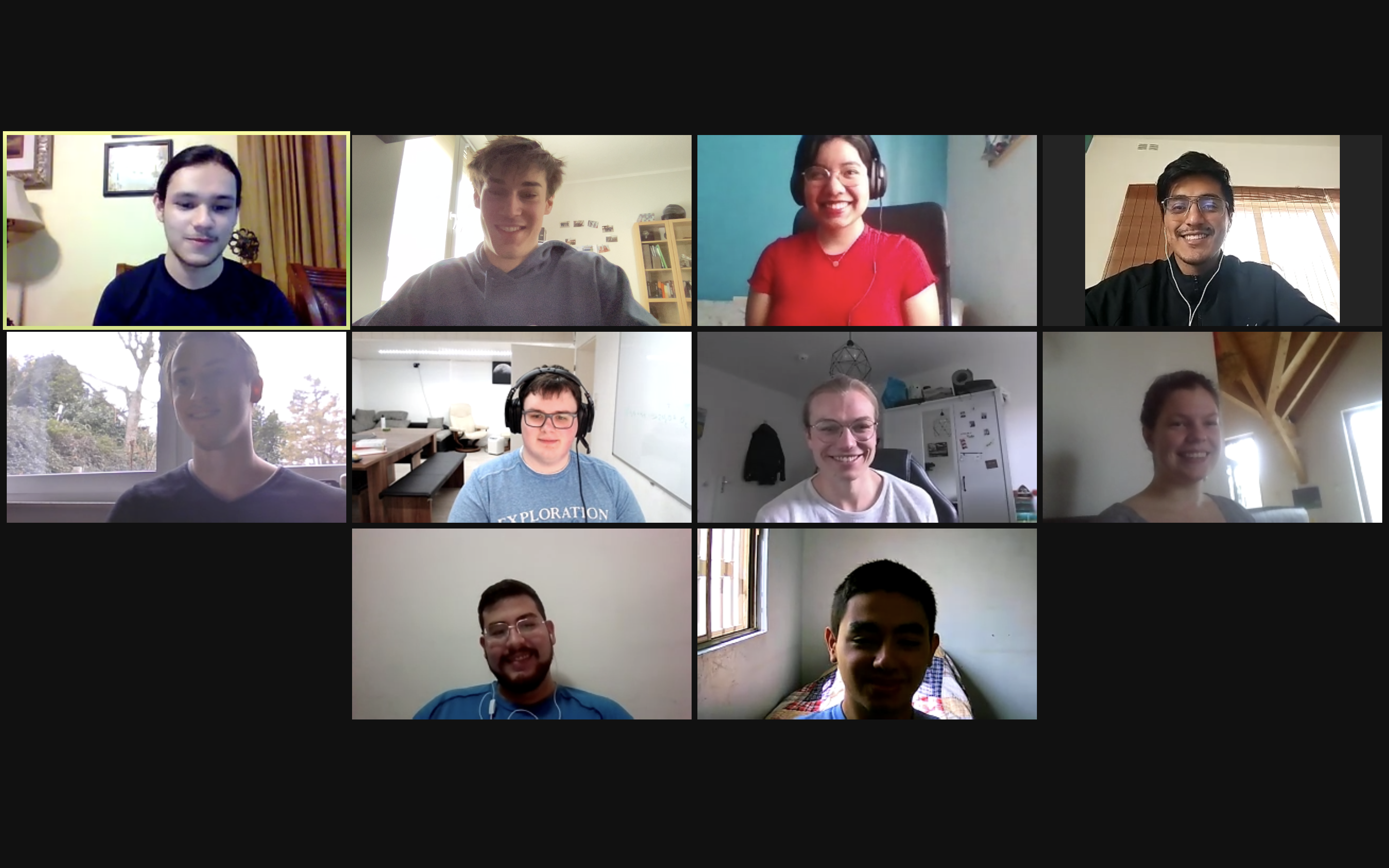
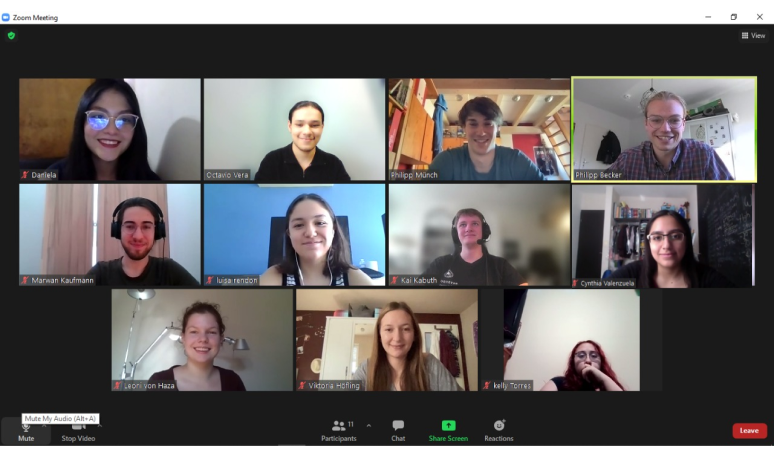
Team Bochum
The iGEM Team RUBochum was the first team ever at the university of Bochum. As a team with multiple years of iGEM experience we were therefore more than happy to help them with establishing their team. We shared amazing talks about our projects, the sponsoring for iGEM, the required deliverables and many more. We also really enjoyed the game night, where we had a lovely pub quiz together.
We think both our teams really profited from this collaboration! We always enjoyed the fun and relaxed but also productive atmosphere in our meetings. We are really grateful for the meetings we spent together and hope that we could contribute to their amazing project Platylicious. We are sure that there will be a lot of future teams coming from Bochum and we are really looking forward to hearing their great ideas.
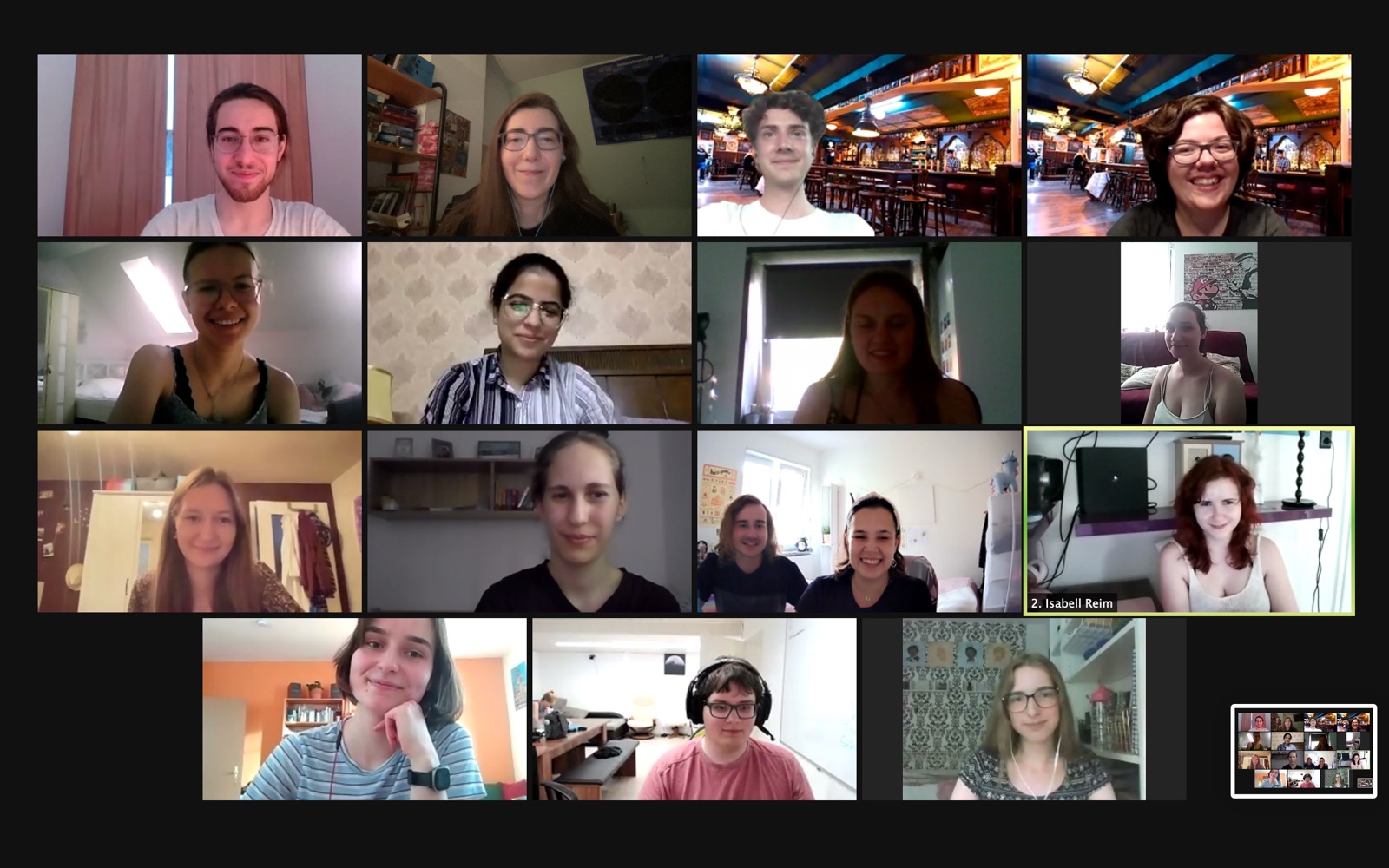
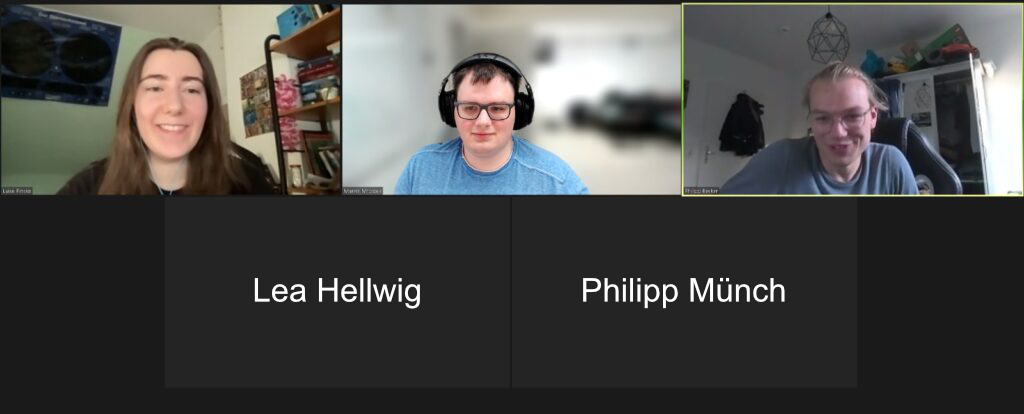
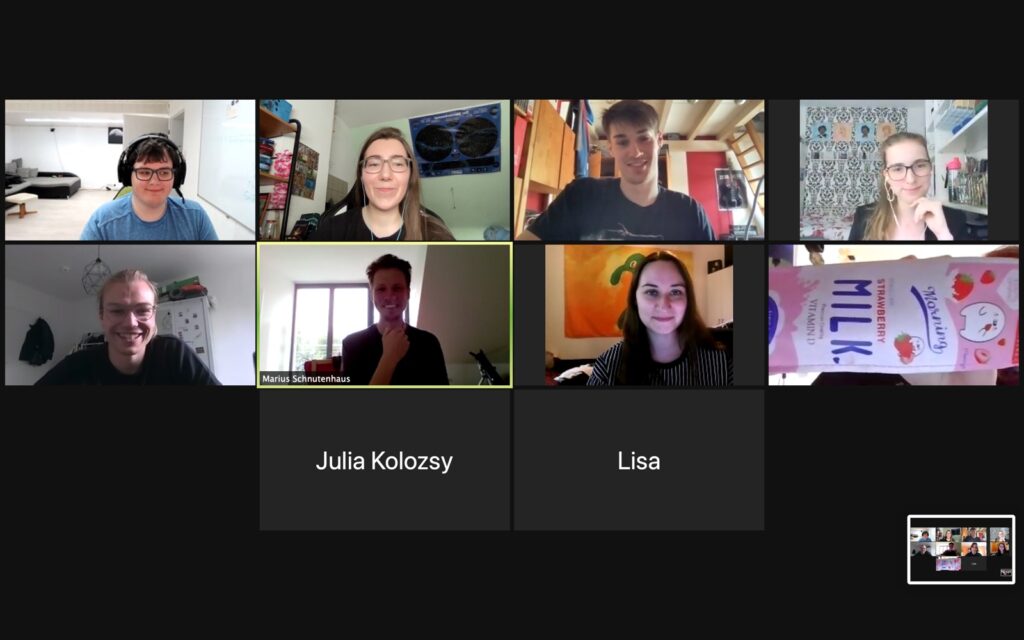
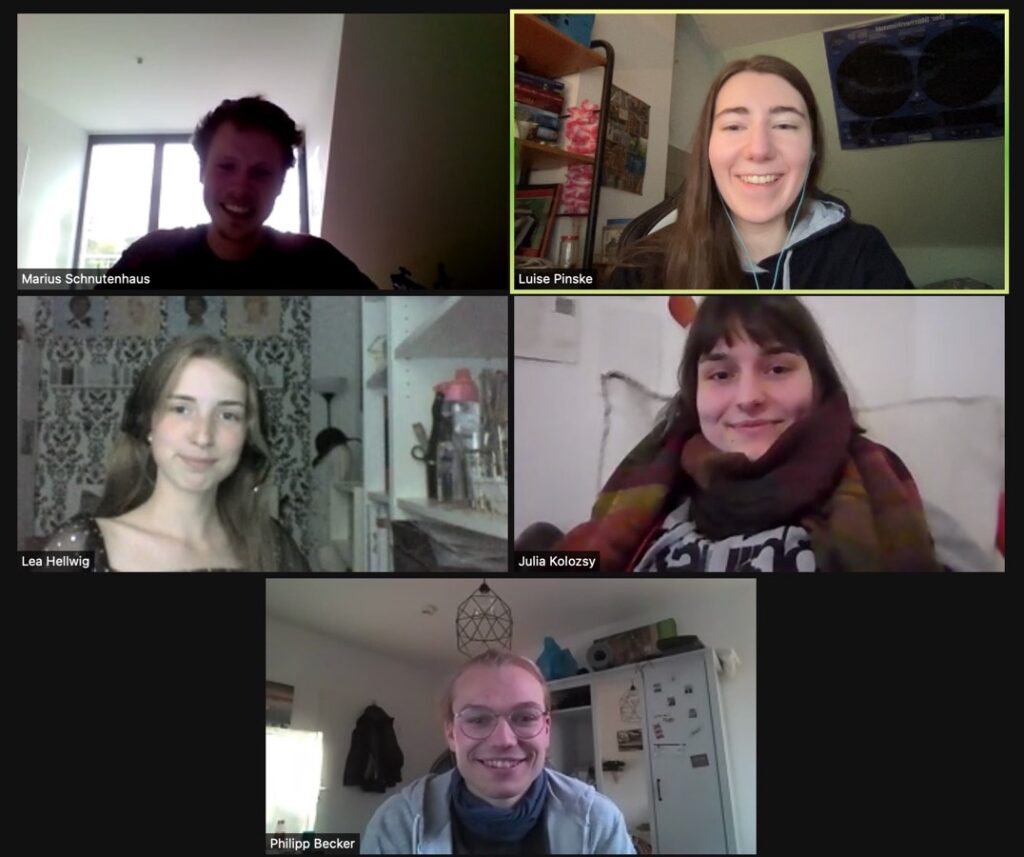
Team Chicago
We got in contact with the iGEM Team from UC Chicago since both our team from last year and their current team focused on utilizing laccases for the degradation of pharmaceuticals and other toxic molecules in wastewater. Some of our members that participated in last year’s project were involved in molecular dynamic simulations and docking experiments of multi-copper oxidases. We talked about our experiences and advice for these computational methods and both profited from the talk. We shared our experience with homology based structure prediction tools and the adaption of MD force fields for the calculation of interactions of copper ions. We also talked about our projects, objectives and goals in general. By discussing our ideas with another iGEM Team we were able to reflect our project and get a lot of valuable feedback from Chicago’s team members. Especially, regarding our genetic circuit model we got some really useful advice, that helped us to develop and refine the accuracy of our differential equations: Regarding our lack of parameters describing transcription and translation rates in bacterial cells, they introduced us in computational tools calculating rate constants based on the constructs sequence.
In our second meeting we spoke about our progress by each giving a short summary of our experiences and progress since the last meeting we had. We once again got some really helpful advice and were able to give the team from Chicago some tips as well.
We are really grateful for this collaboration with the amazing UC Chicago iGEM Team. Our meetings showed us how important exchange between scientists can be when working on interdisciplinary projects. Speaking to other people from a completely different country allowed us to refine both our projects by the useful advice we got. It really allowed us to reflect possible bottlenecks of our approaches and proceed with parts of our project we were previously struggling with.
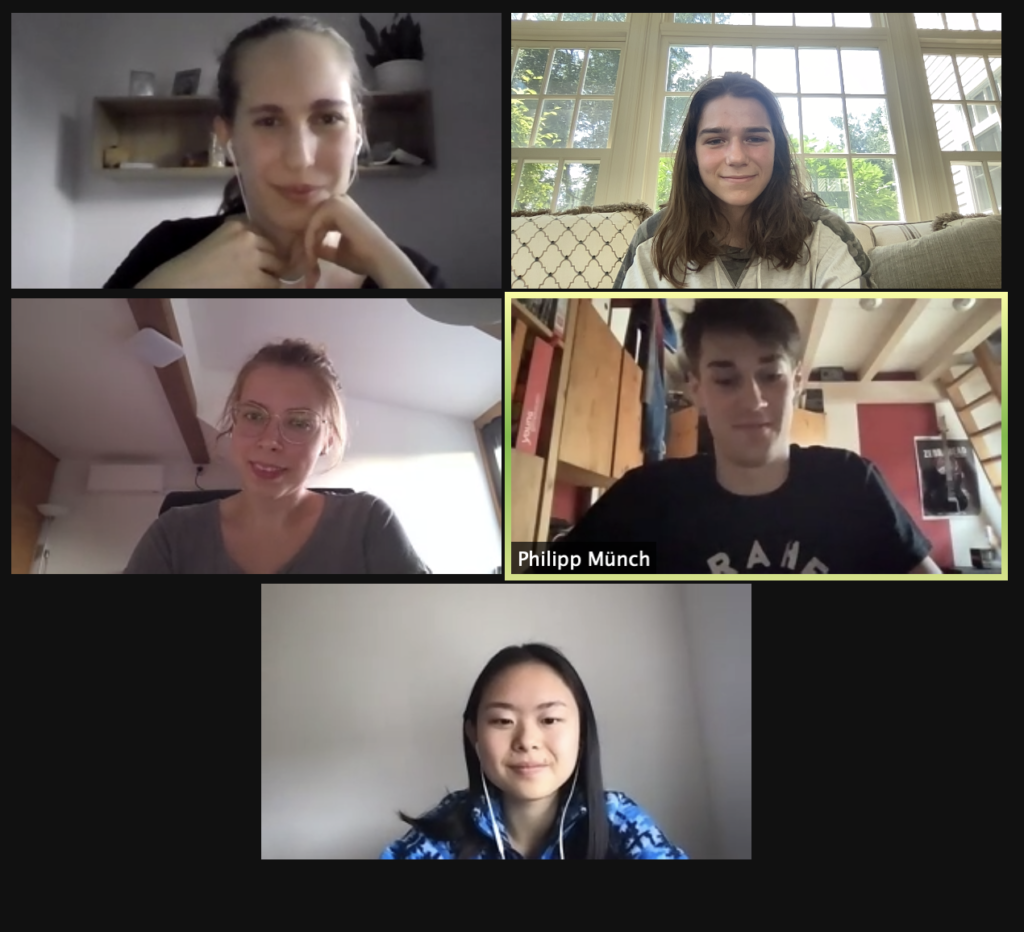
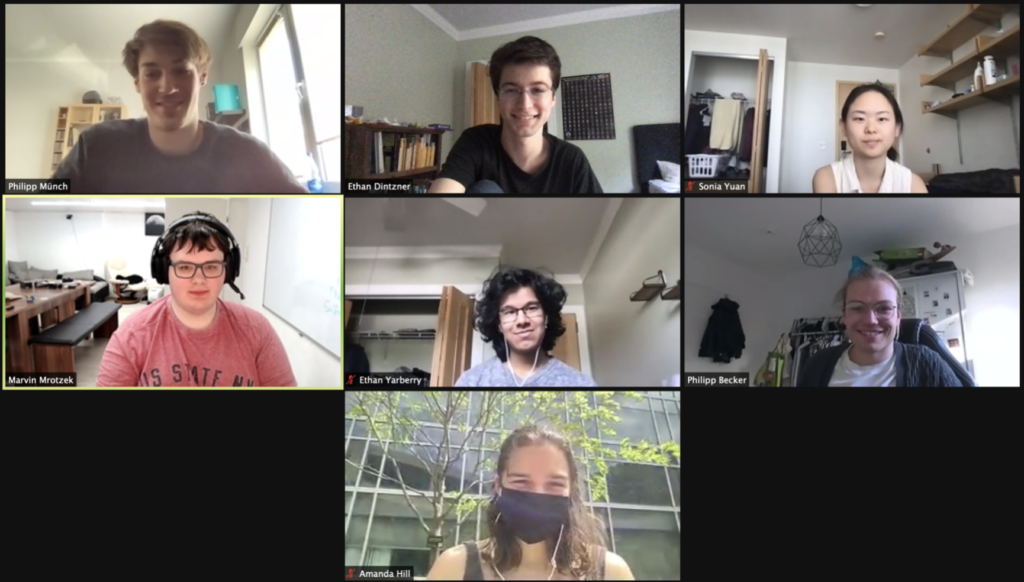
References
- 1. The 17 goals, History. https://sdgs.un.org/goals


